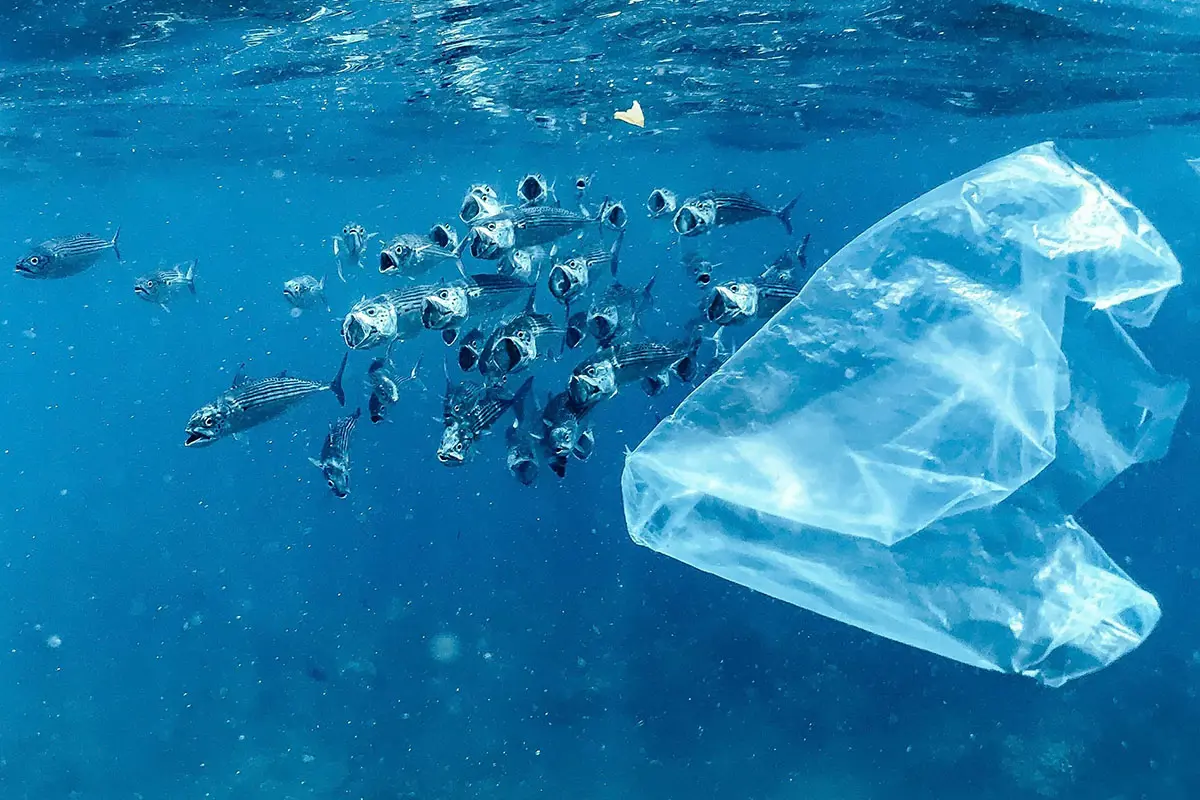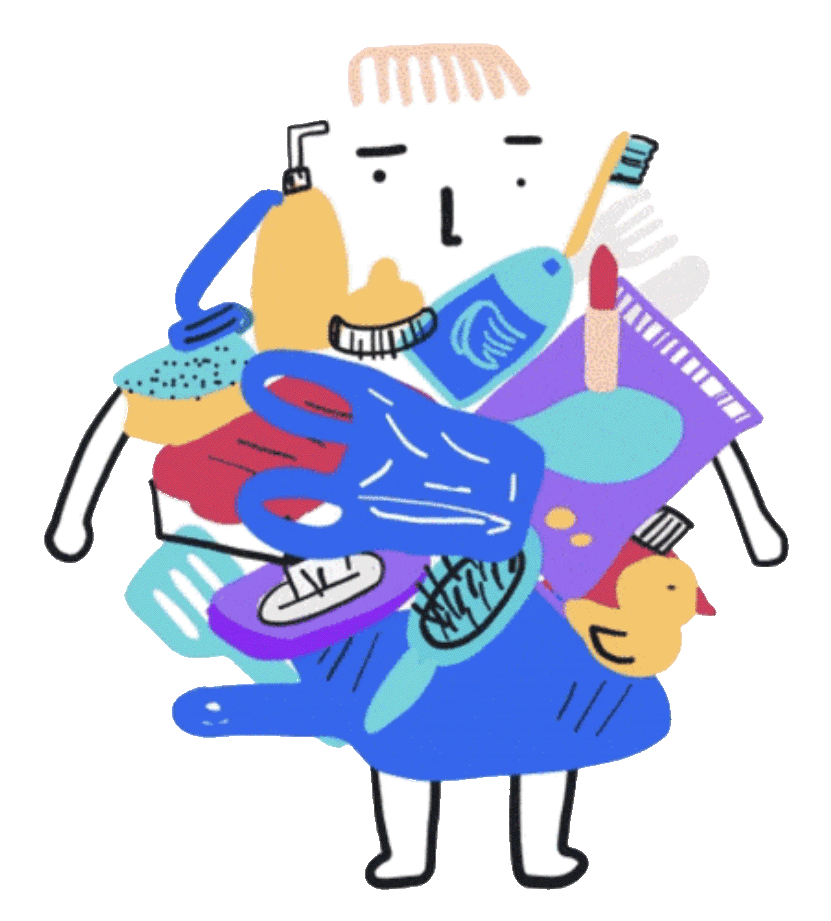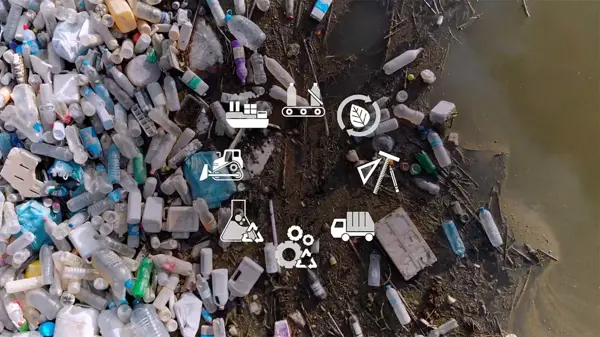Every day, the equivalent of 2,000 lorries full of plastic waste ends up in our oceans, rivers and lakes. That's 1.4 lorries per minute. Experts predict that by 2050, there will be more plastic in the oceans than all marine life combined.
Marine life is paying a high price
Plastic pollution affects marine life in every way possible:
- Sea turtles mistake plastic bags for jellyfish, their favourite food source.
- Fish mistake plastic for fish eggs and deliberately bite into it.
- Whales and dolphins get entangled in fishing nets and slowly suffocate.
Every year, 100,000 marine animals die as a result of plastic pollution. A poignant example: a whale that washed ashore in Spain was found to have no less than 29 kilograms of plastic in its stomach, ranging from bags and fishing nets to jerry cans.
How plastic enters the ocean
More than 1,000 rivers worldwide together account for almost 80 per cent of the plastic entering the sea.³ Fishing also plays a major role in this: lost or discarded fishing nets and lines contribute significantly to plastic pollution.⁷
Plastic never really disappears
Plastic that ends up in nature remains there. It crumbles into microscopic particles: microplastics. These float, suspended in water columns or even end up on the seabed. Only 0.5% of all ocean plastic remains on the surface, which means that clean-up operations at sea only tackle a very small part of the problem.²
The “hotspots” of plastic pollution
The Mediterranean Sea is one of the most significant “hotspots” of plastic pollution. Due to the constant inflow from rivers and the limited opportunity to escape to surrounding oceans, plastic remains there and accumulates. Other hotspots are:
- bays located near large cities;
- bays where plastic drifts and remains;
- islands where different ocean currents converge.
Why plastic pollution is your problem too
In addition to marine life, plastic pollution also affects us. Microplastics end up on our plates, among other places, via fish dishes, and have even been found in our blood and brains. Research shows that this can have serious consequences for our health. Microplastics have been linked to strokes, cancer and infertility. Plastic pollution is therefore not only an ecological problem, but also a humanitarian one.
How you can help
The plastic problem can no longer be denied. Join us in saying “no” to plastic pollution and make a difference. Support us with a donation so that together we can fight for healthy oceans and a plastic-free future.
Sources



.png)

.png?version=17474&width=600)
